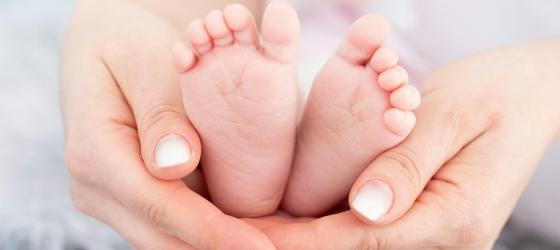Code 9277
Coordinator: Natascia Di Iorgi
Coordinator for Practical-Technical Training and Internship: Laura Fornoni

The training of Pediatric Nurses began in the post-war period as a vocational school at the Giannina Gaslini Institute. Over the years, the educational program has evolved significantly in terms of content, teaching methods, and duration.
The Bachelor's Degree Program in Pediatric Nursing includes the study of Pediatrics and Pediatric Nursing Sciences and spans a duration of three years. The curriculum progresses from foundational and preparatory subjects to advanced, specialized areas of care with high clinical complexity.
The Bachelor’s Degree in Pediatric Nursing qualifies graduates to practice as licensed Pediatric Nurses in the healthcare sector and has a standard duration of three years.
Educational Objectives and Career Opportunities
Graduates in Pediatric Nursing are trained to:
Participate in the assessment of physical and psychological health needs of newborns, children, adolescents, and their families.
Identify pediatric nursing care needs and define appropriate care objectives.
Plan, implement, and evaluate pediatric nursing interventions.
Contribute to health education initiatives within families and communities, care for healthy individuals during developmental stages as part of health promotion and disease/injury prevention programs.
Provide outpatient, home-based, and hospital care for individuals under 18 years of age suffering from acute and chronic conditions.
Deliver care to adolescents as part of socio-health prevention and support programs.
Ensure accurate application of diagnostic and therapeutic prescriptions.
Work both independently and as part of multidisciplinary healthcare and social teams.
Supervise and utilize support staff when necessary in the provision of nursing care.
Practice professionally in public or private healthcare facilities, including home care and community settings, either as employees or as freelance practitioners.
Contribute to the training of support staff and actively participate in continuing education related to their professional role.
Employment Opportunities
Graduates in Pediatric Nursing carry out their professional activities in public and private healthcare facilities, both as employees and as self-employed professionals.
Professional Competencies
In accordance with the Italian Ministry of Health Decree of January 17, 1997, No. 70 (and subsequent amendments), Pediatric Nurses are recognized as healthcare professionals.
Graduates possess the necessary theoretical and practical knowledge to understand the most relevant aspects underlying physiological and pathological processes in pediatric patients.
In addition to proficiency in Italian, graduates of the L/SNT1 class also acquire the ability to use the English language in their professional field to facilitate communication, research, and access to international publications.
Role and Functions of the Pediatric Nurse
The Pediatric Nurse is responsible for: health promotion and education, clinical care, therapeutic education, care management, teaching, research, and professional consulting.
They promote and disseminate a culture of health within the community, plan and implement—together with other professionals—educational and training interventions aimed at children and their families.
They also develop research activities aimed at generating new knowledge to continuously improve care quality, and promote professional integration by actively participating in interdisciplinary teams dedicated to the care of children and their families.
